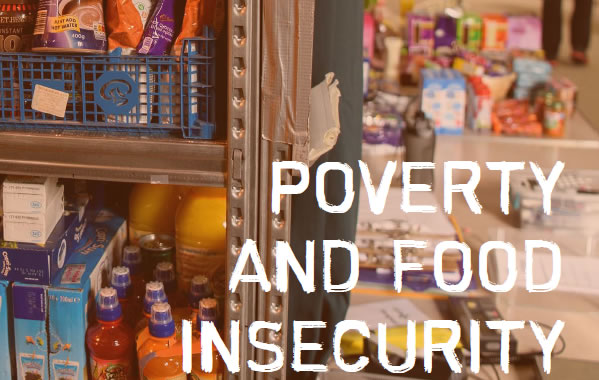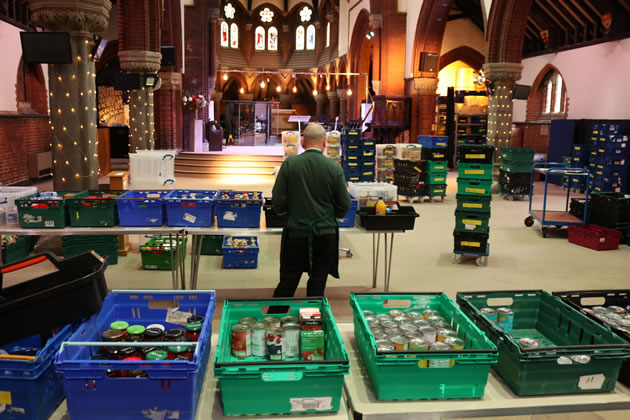Wandsworth Foodbank Supports Record Numbers
Children in Roehampton and Putney Heath Ward were particularly affected by poverty

Wandsworth Foodbank released its new report into poverty, hunger and food bank use in Wandsworth Borough on Thursday (20th June).
The report revealed that the Foodbank provided a record number of emergency food parcels in 2018-19, with more than a third of food supplies going to children.
During April 2018-March 2019, Wandsworth Foodbank provided 5,770 three-day emergency food supplies to local people referred in crisis– more than any year since it opened in 2013. This was an 11% increase from 2017-18, and a 78% increase from five years ago.
More than one-third of emergency food supplies were for children (37%), the majority of whom were primary school age or younger. One in eight food bank referrals were from Wandsworth schools and children’s centres.
Since 2016, child poverty across Wandsworth has increased by 3% to 36% of children living in poverty after essential housing costs. Children in Roehampton and Putney Heath Ward (where 51% of children live in poverty) were particularly affected. It was one of three wards seeing the most referrals to Wandsworth Foodbank last year, as well as an above average proportion of emergency food supplies for children: in Queenstown Ward, 53% of supplies were for children; Roehampton and Putney Heath 44%; Latchmere 40%.
One local school referrer taking part in the Foodbank’s research said: ‘If it wasn't for Foodbank I just do not know how our families would manage. There would be far more ill-health due to lack of food, more segregation due to lack of appropriate clothing and hygiene, and depression due to being unable to provide basics for your family... I've never seen life being so hard for so many.’
For local referrers, Wandsworth Foodbank appears to be a sadly necessary part of the support they were able to offer people last year: ‘It’s genuinely benefited our vulnerable service users by meeting needs in times of real crisis; where no other service can do this. Without such important work, our service users’ wellbeing would deteriorate further and this has been prevented by this service. I am so glad such services exist.’ NHS referrer.
‘It’s proving a sadly vitally needed service to families in desperate need; doing so with compassion and without inducing shame they already feel.’ Local authority referrer.
The report finds that financial hardship, poverty and hunger severely impacts the lives of local people who experience it; and the report calls for poverty and its associated health and social inequalities in Wandsworth to be an urgent public health priority. The top three reasons for referral to the food bank were ‘benefit delays’ and ‘benefit changes’ (40% of referrals), and ‘income not covering essential costs’ (30% of referrals). The five-week wait for first payment of Universal Credit (UC) was the most commonly-cited benefit issue leading to food bank referral, cited by seven in ten referrers. The report suggests that most people simply cannot afford to wait a month or more without income for basic essentials, and that UC Advance Payments are a debt not a solution; both raising questions as to how right or reasonable it is for the government to design this five-week delay deliberately into Universal Credit policy:
Wandsworth Foodbank’s report contains six recommendations for reducing poverty and the need for food banks locally; including the government ending the five-week wait for first payment of Universal Credit; and Wandsworth Council creating and publishing a local Anti-Poverty Strategy in partnership with multiple stakeholders – including statutory sectors (e.g. school, health, police, housing association), voluntary sectors, and private sector (e.g. local businesses, developers) – which would include key objectives of reducing child poverty, reducing the link between poor health and poverty, and reducing in-work poverty locally (see p3 of the report).
Dan Frith, Wandsworth Foodbank Manager, says: ‘This is the sixth Wandsworth Foodbank report. They’re a really important part of what we do. When you've worked all year helping people climb out of the river, it's vital to go upstream and see what's pushing them in. When we set up Wandsworth Foodbank in 2013 we hoped we wouldn't be needed for long. But sadly the need for emergency food continues to increase: 78% in five years.
There are always mixed feelings running a food bank. It's a privilege to stand alongside and support local people who’ve been pulled into poverty and crisis; to work with our amazing team of 200-plus regular volunteers, and everyone who generously donated 64 tonnes of food and basic toiletries to help others in our community. It’s great to be able to provide specialist advice in partnership with Citizens Advice Wandsworth, to help people resolve the problems that have pulled them in to crisis.
We believe that poverty isn't inevitable. It's fixable. I would love it if Wandsworth Council and the government would action the recommendations from our report – which echo what food banks and charities are saying across the country – so that next year we see less people, not more, needing to use Wandsworth Foodbank.’
June 21, 2019
Related links
|
